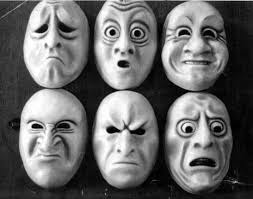I often talk about how first and foremost, writers should write. This seems like an obvious thing to do, yet sometimes I feel obliged to remind people about it. When a writer is bogged down in a project, what's the best remedy? Write something else. Writer's block? Write literally anything. Not feeling your best about something you've just written? Write the exact thing again, approaching it with every doubt you have. That's what I mean about writing - it should be the go-to tool in your toolbox.
 |
| Kurt Vonnegut |
First and foremost, a writer is a member of the Creative Type. The only catch is that someone who sticks strictly to their writing is missing a chance to improve themselves in different ways that will eventually feed back into their writing skills. When a writer embraces their membership into the family of people who make up the Creative Type, they consciously decide to adventure into the creative world and find out what's in there. From that point they just take everything in, becoming hoarders of experiences and anecdotes, and this all becomes fodder for their future writing. It's quite amazing once you get into the habit.
The author Kurt Vonnegut was no stranger to exploring the wild world of the Creative Type. In a letter he penned to the high-school students of a Ms. Lockwood, he offered some advice on just how and why this should be done:
Practice any art, music, singing, dancing, acting, drawing, painting, sculpting, poetry, fiction, essays, reportage, no matter how well or badly, not to get money and fame, but to experience becoming, to find out what's inside you, to make your soul grow.
Seriously! I mean starting right now, do art and do it for the rest of your lives. Draw a funny or nice picture of Ms. Lockwood, and give it to her. Dance home after school, and sing in the shower and on and on. Make a face in your mashed potatoes. Pretend you're Count Dracula.
Here's an assignment for tonight, and I hope Ms. Lockwood will flunk you if you don't do it: Write a six line poem, about anything, but rhymed. No fair tennis without a net. Make it as good as you possibly can. But don't tell anybody what you're doing. Don't show it or recite it to anybody, not even your girlfriend or parents or whatever, or Ms. Lockwood. OK?
Tear it up into teeny-weeny pieces, and discard them into widely separated trash recepticals [sic]. You will find that you have already been gloriously rewarded for your poem. You have experienced becoming, learned a lot more about what's inside you, and you have made your soul grow. [emphasis added]
I highlight the very last part because that's the best part - anything and everything you do in the name of being a Creative Type will inspire growth within, and that will never be reversed. For that reason alone, this adventure is worth it.





